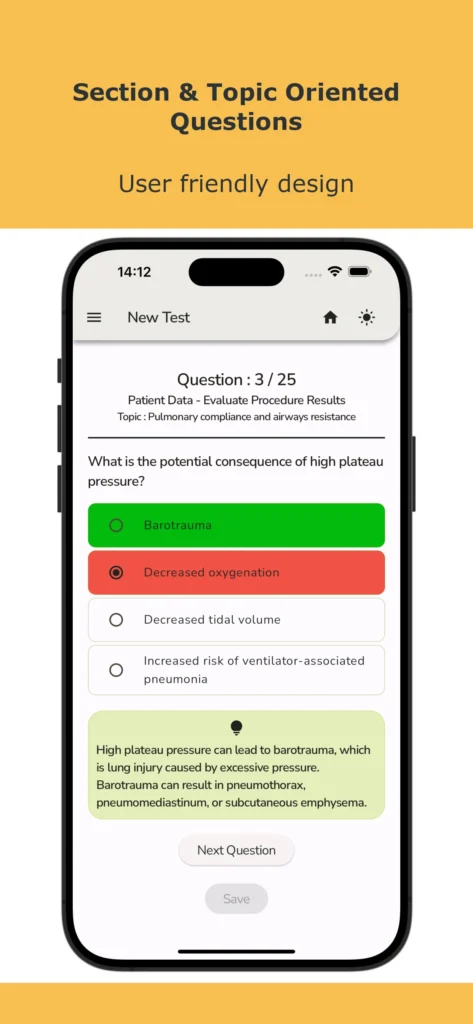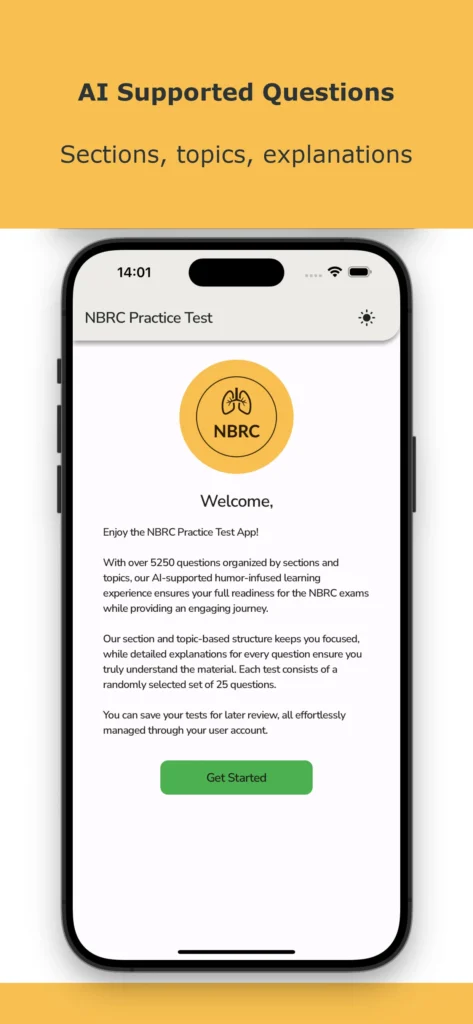Introduction to ACCS NBRC
What is ACCS NBRC?
ACCS NBRC stands for Adult Critical Care Specialist, which is a certification offered by the National Board for Respiratory Care (NBRC). It is a specialized credential for respiratory therapists who work in adult critical care settings. This certification demonstrates a respiratory therapist’s advanced knowledge and skills in providing care to critically ill patients.
Why is ACCS NBRC important?
ACCS NBRC certification is important for respiratory therapists who want to advance their careers in adult critical care. It validates their expertise and demonstrates their commitment to providing high-quality care to critically ill patients. Having the ACCS NBRC certification can also open up new job opportunities and increase earning potential.
ACCS NBRC Exam
The ACCS NBRC exam is a comprehensive test that assesses a respiratory therapist’s knowledge and skills in adult critical care. It covers various topics, including respiratory assessment, mechanical ventilation, hemodynamics, and patient management. The exam consists of multiple-choice questions and requires a passing score to obtain the certification.
ACCS NBRC Study Guide
Preparing for the ACCS NBRC exam requires a comprehensive study guide that covers all the relevant topics. A good study guide should include detailed explanations of key concepts, practice questions, and tips for exam success. It is important to choose a study guide that is specifically designed for the ACCS NBRC exam to ensure you are adequately prepared.
ACCS NBRC Practice Exam
Practicing with ACCS NBRC practice exams is an essential part of exam preparation. These practice exams simulate the actual exam experience and help you familiarize yourself with the format and types of questions you may encounter. They also allow you to assess your knowledge and identify areas where you need further study.
What is the ACCS Exam?
The ACCS exam, also known as the NBRC ACCS exam, is a certification exam offered by the National Board for Respiratory Care (NBRC). It stands for Adult Critical Care Specialist and is designed for respiratory therapists who specialize in providing care to adult patients in critical care settings.
To become an ACCS, respiratory therapists must pass the ACCS exam, which assesses their knowledge and skills in critical care respiratory therapy. This exam is an important step for respiratory therapists who wish to advance their careers and demonstrate their expertise in adult critical care.
The ACCS exam covers a wide range of topics related to adult critical care, including respiratory assessment, mechanical ventilation, hemodynamics, and pharmacology. It tests the candidate’s ability to assess and manage patients with complex respiratory conditions, such as acute respiratory distress syndrome (ARDS), sepsis, and multi-system organ failure.
Preparing for the ACCS exam requires a comprehensive study plan and the use of reliable study resources. One such resource is the NBRC ACCS study guide, which provides a detailed overview of the exam content and offers practice questions to help candidates familiarize themselves with the format and difficulty level of the exam.
In addition to studying the NBRC ACCS study guide, candidates can also benefit from taking practice exams specifically designed for the ACCS exam. These practice exams simulate the actual exam experience and allow candidates to assess their knowledge and identify areas where they may need further study.
By successfully passing the ACCS exam, respiratory therapists can demonstrate their competence in adult critical care and enhance their professional credentials. This certification can open up new career opportunities, such as working in intensive care units, emergency departments, and other critical care settings.
In conclusion, the ACCS exam is a certification exam offered by the NBRC for respiratory therapists specializing in adult critical care. It assesses their knowledge and skills in critical care respiratory therapy and is an important step for career advancement. By studying the NBRC ACCS study guide and taking practice exams, candidates can increase their chances of success in this challenging exam.
Preparing for the ACCS Exam
Introduction
The ACCS (Adult Critical Care Specialist) exam is a crucial step for respiratory therapists looking to advance their careers in critical care. This comprehensive guide will provide you with essential information on how to prepare for the ACCS exam, including study guides, practice exams, and expert tips.
Understanding the ACCS Exam
The ACCS exam, administered by the NBRC (National Board for Respiratory Care), is designed to assess the knowledge and skills of respiratory therapists in the field of adult critical care. It covers a wide range of topics, including mechanical ventilation, hemodynamics, pharmacology, and patient assessment.
Study Guide for the ACCS Exam
A well-structured study guide is essential for effective exam preparation. It helps you organize your study materials and focus on the key topics. When selecting a study guide, look for one that covers all the content areas of the ACCS exam and provides practice questions and explanations.
There are several reputable study guides available for the ACCS exam, such as the ‘ACCS Exam Review’ by Gary Persing and the ‘Adult Critical Care Specialty Certification Review Course’ by the American Association for Respiratory Care (AARC). These resources are widely used by respiratory therapists and have received positive reviews for their comprehensive coverage and helpful practice questions.
Practice Exams for the ACCS Exam
Practice exams are invaluable tools for assessing your knowledge and identifying areas that require further study. They simulate the actual exam experience and help you become familiar with the format and types of questions you may encounter.
The NBRC offers an official ACCS practice exam that closely resembles the real exam. It consists of 125 multiple-choice questions and provides detailed explanations for each answer. Taking this practice exam will give you a good idea of your readiness for the actual ACCS exam.
In addition to the official practice exam, there are other online resources that offer ACCS practice exams, such as ‘Respiratory Therapy Zone’ and ‘Therapist Multiple-Choice Exam Review’ by Gary Persing. These resources provide a variety of practice questions to help you reinforce your knowledge and improve your test-taking skills.
Expert Tips for the ACCS Exam
Preparing for the ACCS exam can be challenging, but with the right approach, you can increase your chances of success. Here are some expert tips to help you:
- Start early: Give yourself enough time to study all the content areas thoroughly.
- Create a study schedule: Plan your study sessions and allocate specific time for each topic.
- Focus on weak areas: Identify the topics you find most challenging and dedicate extra time to understanding them.
- Practice, practice, practice: Take as many practice exams as possible to familiarize yourself with the exam format and improve your test-taking skills.
- Review and revise: Regularly review your study materials and revise the key concepts to reinforce your understanding.
- Seek help if needed: If you’re struggling with certain topics, don’t hesitate to reach out to fellow respiratory therapists or online communities for support and clarification.
Conclusion
Preparing for the ACCS exam requires dedication, time, and a well-structured study plan. By utilizing study guides, practicing with practice exams, and following expert tips, you can enhance your chances of passing the ACCS exam and advancing your career as a respiratory therapist in adult critical care.
The Importance of the RRT-ACCS Credential
What is the RRT-ACCS Credential?
The RRT-ACCS credential, offered by the National Board for Respiratory Care (NBRC), stands for Registered Respiratory Therapist – Adult Critical Care Specialist. It is a specialized certification that demonstrates a respiratory therapist’s advanced knowledge and skills in providing care to adult patients in critical care settings.
Why is the RRT-ACCS Credential Important?
The RRT-ACCS credential holds significant importance for respiratory therapists who work in adult critical care. Here are a few reasons why:
- Advanced Expertise: The RRT-ACCS credential signifies that a respiratory therapist has achieved a higher level of expertise in adult critical care. It demonstrates their ability to handle complex cases, make critical decisions, and provide advanced respiratory care to critically ill patients.
- Career Advancement: Holding the RRT-ACCS credential can open up new career opportunities for respiratory therapists. Many healthcare facilities prefer hiring respiratory therapists with specialized certifications, and having the RRT-ACCS credential can give you a competitive edge in the job market.
- Increased Earnings: Respiratory therapists with specialized certifications often earn higher salaries compared to those without certifications. The RRT-ACCS credential can lead to better-paying job opportunities and increased earning potential.
- Professional Recognition: The RRT-ACCS credential is a mark of professional recognition within the respiratory therapy field. It demonstrates your commitment to continuous learning and professional development, and it can enhance your reputation among colleagues and peers.
Preparing for the RRT-ACCS Exam
If you’re considering pursuing the RRT-ACCS credential, it’s essential to prepare for the exam thoroughly. Here are a few tips to help you get started:
- Study Guide: Use a comprehensive study guide specifically designed for the RRT-ACCS exam. A study guide will provide you with a structured approach to studying and help you focus on the key topics and concepts that will be tested.
- Practice Exams: Take practice exams to familiarize yourself with the format and types of questions you can expect on the RRT-ACCS exam. Practice exams will also help you identify areas where you need to improve and focus your studying.
- Review Course: Consider enrolling in a review course or workshop that is specifically tailored to the RRT-ACCS exam. These courses can provide valuable insights, tips, and strategies to help you succeed.
- Utilize Resources: Take advantage of online resources, textbooks, and research articles to supplement your studying. Stay updated with the latest advancements and guidelines in adult critical care to ensure you’re well-prepared for the exam.
By investing time and effort into your preparation, you can increase your chances of passing the RRT-ACCS exam and earning this valuable credential.
The AARC’s Adult Critical Care Specialist Course
What is the AARC’s Adult Critical Care Specialist Course?
The AARC’s Adult Critical Care Specialist (ACCS) Course is a comprehensive program designed to prepare respiratory therapists for the ACCS exam administered by the National Board for Respiratory Care (NBRC). This course is specifically tailored for respiratory therapists who work in adult critical care settings and wish to enhance their knowledge and skills in this specialized area.
The ACCS Course covers a wide range of topics, including advanced patient assessment, mechanical ventilation, hemodynamics, pharmacology, and critical care procedures. It provides in-depth instruction and hands-on practice to ensure that respiratory therapists are well-prepared to excel in their roles as adult critical care specialists.
By completing the ACCS Course, respiratory therapists can gain a deeper understanding of the complexities of adult critical care and enhance their ability to provide high-quality care to critically ill patients.
Why is the ACCS Course important?
The ACCS Course is important for respiratory therapists who work in adult critical care settings because it equips them with the knowledge and skills necessary to excel in their roles. It provides a comprehensive overview of the key concepts and practices in adult critical care, ensuring that respiratory therapists are well-prepared to handle the unique challenges of this specialized area.
By completing the ACCS Course, respiratory therapists can enhance their career prospects and open up opportunities for advancement. Employers often value the specialized knowledge and skills gained through the ACCS Course, making respiratory therapists more competitive in the job market.
How to prepare for the ACCS exam?
Preparing for the ACCS exam requires a combination of study and practice. The AARC’s ACCS Course is an excellent resource for respiratory therapists looking to prepare for the exam. It provides comprehensive study materials, including textbooks, online modules, and practice exams.
In addition to the ACCS Course, respiratory therapists can also utilize other study resources such as review books, online practice questions, and study groups. It is important to create a study plan and allocate dedicated time for exam preparation.
Practicing with sample questions and taking mock exams can help respiratory therapists familiarize themselves with the format and content of the ACCS exam. It is also beneficial to review and reinforce key concepts through self-study and discussions with peers.
Conclusion
The AARC’s Adult Critical Care Specialist Course is a valuable resource for respiratory therapists seeking to enhance their knowledge and skills in adult critical care. By completing this course and preparing for the ACCS exam, respiratory therapists can become well-equipped to provide high-quality care to critically ill patients in adult critical care settings.
Conclusion
In conclusion, the ACCS NBRC exam is a crucial step for respiratory therapists looking to advance their careers. By obtaining the ACCS credential, respiratory therapists can demonstrate their expertise in critical care and gain recognition for their specialized knowledge. To succeed in the ACCS NBRC exam, it is essential to have a comprehensive study guide and ample practice. The NBRC ACCS study guide provides a structured approach to studying for the exam, covering all the necessary topics and providing practice questions to test your knowledge. Additionally, taking practice exams can help you familiarize yourself with the format and timing of the actual ACCS NBRC exam. These practice exams simulate the real exam experience and allow you to identify areas where you may need additional review. By dedicating time and effort to studying and practicing, you can increase your chances of passing the ACCS NBRC exam and earning the ACCS credential. Remember to utilize the resources available to you, such as online study materials, review courses, and study groups. With proper preparation and a focused study plan, you can confidently approach the ACCS NBRC exam and take a significant step forward in your respiratory therapy career.








